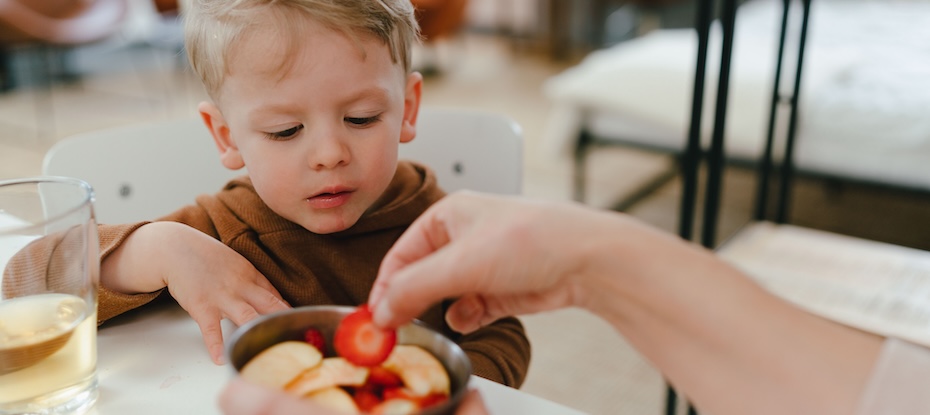
The first five years of a child’s life are crucial for their development and setting the basis of the adult they'll become. Most of the brain development happens during these years. Quality childcare gives children the start they need to thrive during their early years and be physically, mentally, and socially ready for their next stage in life.
Understanding Childcare Environments
Childcare comes in all different shapes and sizes, offering infinite possibilities for young ones. For children younger than school age, there are childcare centres and family daycare; childcare centres are usually run by a private organisation, community group, or employer, and family daycare is a person or persons caring for other people’s children in their own home. Carers and educators usually provide meals for children during their stay. Educators need early childhood qualifications and should aim at providing activities that help children achieve learning goals.
Due to the large amount of time a caregiver or educator spends with the children they care for, the influence on a child’s development, wellbeing, and habits is significant. Requiring caregivers to hold minimum qualifications ensures they know how to provide a safe learning environment. A good childcare provider will give a child the experience to make a positive start at school as it impacts ways to share, being around children their age, experiencing toys and activities they enjoy, and having positive brain development.
Parents who don’t send their child to childcare can offer similar activities and learning opportunities at home and join groups so their child can meet others.
Promoting Health and Wellness in Childcare
Most parents with children in childcare will agree the first 12 months can be brutal for sicknesses. Children are susceptible to illness when they start childcare because they are in contact with more people than at home and are exposed to infections that their small bodies haven’t encountered before.
Childcare centres aim to limit exposure to illness by asking parents to pick up sick children and warn parents when another child has a contagious infection while in the centre. Regular cleaning of surfaces and toys can help reduce the rate of illnesses, but being in close contact with no understanding of ‘personal space’ means they can easily transfer the infections to their friends.
Spending time outside in fresh air can reduce the risk of exposure to infections compared to time spent indoors. Getting children to eat nutritious meals at childcare boosts their immune system and teaches them healthy eating habits. Moreover, engaging in physical activities builds strong and healthy bodies and reinforces the importance of exercise at an early age.
Cultivating Healthy Habits for Kids
The COVID-19 pandemic taught us that anyone can learn new personal hygiene habits. Don’t wait until your child starts school to learn helpful safety tips for infectious diseases. Young children spend far more time on the floor than their parents, particularly during their crawling stage. Floors contain bacteria and infectious diseases, which can transfer from the hands to the mouth in a matter of seconds. You can start teaching your child effective hand washing skills since they're young by using a step in the bathroom to reach the sink. Create the habit of starting to eat with clean hands and even a clean flannel. And for the times your child may resist washing their hands, get creative and make it fun. Once it becomes a habit, they won’t dwell on whether they should do it or not.
Teach your child to sneeze or cough into their elbow rather than in their hands to reduce spreading germs. As soon as they are old enough, show them how to turn their head so they aren’t sneezing and coughing in your face or their siblings.
Healthy eating can be a struggle in some households with young children. They may limit to wanting to eat a few foods or refuse to try new ones. Don’t give up. Remember, you may need to offer a new food to your child 10 times before they eat it. Model good healthy eating for your children by choosing fruit and vegetables rather than salt and sugar-laden snacks. This is the number one rule! Children are always watching us for guidance, so encourage the behaviours you want to see in them.

Monitor the time your child spends looking at a TV or iPad screen. While the program may be educational, too much screen time becomes a habit they will struggle to break when you want them to play outside or read a book. The Australian Institute of Family Studies recommends no screen time for children under 24 months, no more than one hour per day for children aged 2-5 years, and no more than 2 hours for those aged between 5 and 17. Ask your childcare provider what activities your child does at daycare and offer a similar routine when you’re home so they are kept busy and avoid looking for the iPad to fill in the day.
Understanding Private Health Insurance for Children in Australia
Many people argue that private health insurance for kids is unnecessary. But there’s a range of benefits for children. Just like adults, some treatments for children have a waiting list if you’re a public patient. Having health insurance cover means your child can avoid the queue for any elective surgery they may need. As their parent, you can also choose your child’s doctor and have a say in the treatment they receive in the hospital. Public patients are assigned the next available doctor, and the treatment may be the most cost-effective for the public purse. Elective surgery won’t necessarily equal life-saving, but many treatments can improve a child’s health and overall wellbeing. It can be hard for parents to watch their child suffer when they could have received treatment earlier and enjoyed the benefits promptly.
Private health insurance for children only in Australia is rare. Most funds have policies for a single parent with one or more children or two adults and a child or children. In most health funds, the difference in price between cover for a couple and cover for a family is not excessive. Most policies don’t have a limit on the number of children the policy covers, so it’s good value for large.
Comprehensive Health Coverage for Kids
Health insurance for children doesn’t just cover them for treatment in the hospital. There are also out-of-hospital medical treatments to consider.
Childhood sporting injuries are common. You want your child to receive the best advice for recovering without permanent weakness or reduced range of motion, so you take them to a physiotherapist. The cost of seeing a physio can add up quickly, but an Extras policy allows you to claim for your child’s appointments. The Extras policy can help cover the cost of your child’s dental appointments and optical expenses too. If you think your child may need orthodontic treatment, check that your current policy covers orthodontics well before it’s required. Due to the cost, most funds have a 12-month waiting period. Moreover, many children need mental health support, and some policies help cover the cost of psychological appointments.
Child Adventure: Travel Safe with Insurance

Travelling with your children can be a mixed bag of emotions. Travel can provide the highest of highs but can come with a few risks. Nothing compares to the feeling of discovering new places, cultures, and experiences with your children, but tiredness and overstimulation can unleash some behaviour you don’t normally see at home and unfortunately, accidents and illness can happen at any time. If you’re considering a holiday outside Australia, don’t leave home without child travel insurance. Without travel insurance, needing emergency healthcare can result in a massive cost. Most overseas hospitals don’t offer subsidised care to adults or children of any age if they aren’t citizens. The daily cost of hospital treatment can run into the tens of thousands every day whether you’re in a first or third-world country. A medevac flight back to Australia can result in the hundreds or thousands. The stress of a sick or injured family member in a foreign country will be high enough even without considering how you will pay the medical costs. Travel insurance offers peace of mind that if the unthinkable happens, you can access the best possible healthcare abroad and return to Australia as soon as possible.
Travel insurance doesn’t just cover medical emergencies. If you need to cancel your trip for various reasons, you can use your travel insurance policy to cover the cost of deposits. Travel insurance can also help with inconveniences such as delayed or lost luggage. Imagine arriving at your overseas destination only to be told your whole family’s luggage is still in Australia. The cost of buying clothing and personal items to see you through for even a day or two can put a big hole in your spending money. But with travel insurance, these costs may be covered. HIF travel insurance has multiple plans and optional cover packs for certain activities or types of transport.
Invest in your child’s future health from today. Request an online quote and select between ‘Myself and my kids’ or ‘Our family’ to find the perfect insurance plan.